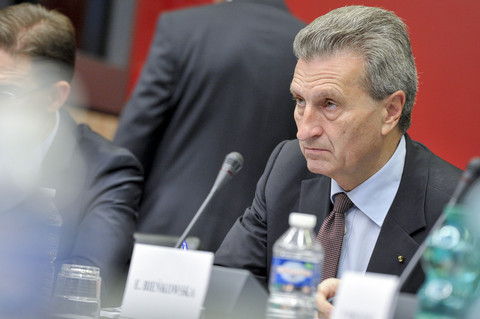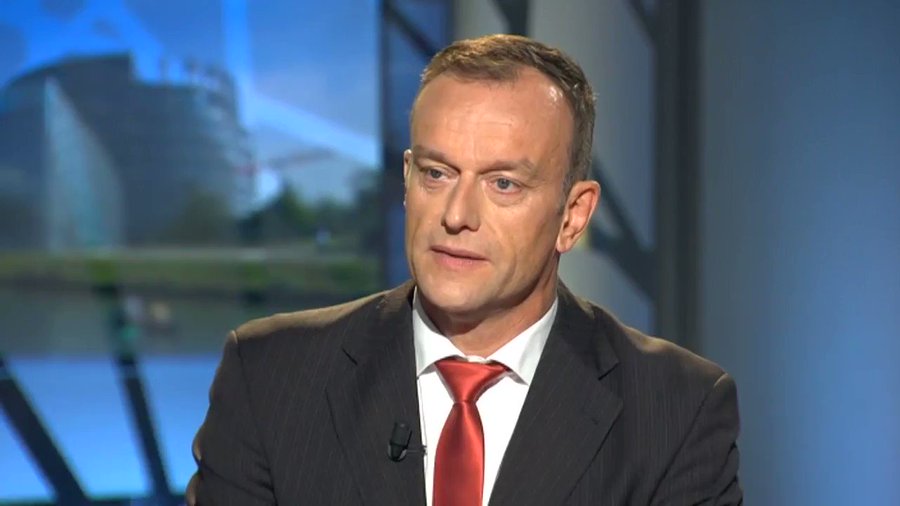The shockwaves of Italy's political crisis started to be felt on eurozone markets and in the EU corridors last Tuesday (29 May), amid fears of contagion to Spain and accusations of European pressure on Italian democracy.
Italian bonds suffered their worst day on financial markets since 1992. The two-year bond, a sign of short-term market confidence, jumped by 150 points.
 Misquoted comments by commissioner Oettinger fueled accusations of EU meddling (Photo: European Parliament)
Misquoted comments by commissioner Oettinger fueled accusations of EU meddling (Photo: European Parliament)
The difference with German bonds, which are used as a reference - reached 300 points for 10-year bonds, the highest so-called spread since 2013.
"There are no justifications for what is happening on the markets today, except for emotional ones," said Bank of Italy governor Ignazio Visco, two days after talks to form a government collapsed over the appointment of an anti-euro finance minister.
"The increase of the spread doesn't immediately affect Italy's economy. But if it stays on the rise, it would become problematic," Guntram Wolff, the head of the Bruegel economic think tank told EUobserver.
In a tweet, Wolff later noted that the increase if the two-year bonds was "just frightening" because markets had now "a coordination point to bet against Italy."
In Rome, the leader of the far-right League party, Matteo Salvini, put the blame on president Sergio Mattarella's rejection of Paolo Savona as finance minister.
"They chose differently to reassure the markets but they don't seem to be achieving that to me," he said, also referring to Germany, France and the EU, whom he had accused of treating Italy like a "colony".
Salvini's accusations that the EU was blocking the formation of a government between the League and the anti-system Five-Star Movement (M5S) because of their critical views on the EU were fuelled on Tuesday by an EU commissioner's comments.
In an interview with Germany's Deutsche Welle TV channel, budget commissioner Guenther Oettinger said that his "concern and expectation" were that the situation in the coming weeks would become "so far-reaching that it might become a signal to voters after all to not vote for populists on the right and left."
"I can only hope that this will play a role in the election campaign and send a signal not to hand populists on the right and left any responsibility in government," he said.
Oettinger was at first misquoted as saying that the markets would "teach" Italian voters how reject the League and M5S.
The remarks drew immediate criticism from Salvini, who said that "they are without shame in Brussels" and called for the "immediate" resignation of the commissioner.
'Italy deserves respect'
In an unusual public show of criticism between EU institutions that underlines the growing nervousness over the situation in Italy, European Council president Donald Tusk called on EU institutions to respect and not to lecture Italian voters.
The president of the European Parliament, Antonio Tajani, who had himself been talked about as a possible prime minister before the Italian elections, also tweeted that his country was "not a democracy with limited sovereignty." EU Obs.
"I want everyone to respect the will of the people," he said, insisting that "it is not the markets that decide the fate of the republic."


.jpeg)